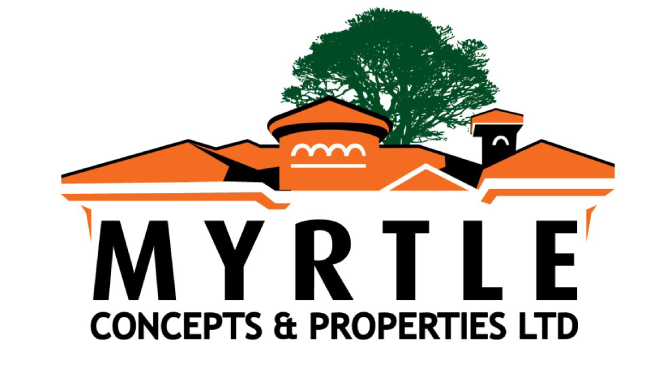
The real estate sector in Uganda is unregulated and the various stakeholders work in a free-market economy where property prices are determined by the forces of demand and supply without any government intervention. Property prices are determined by the market trends which are usually speculative in nature. However, the speculative nature disregards the actual property price and usually results into overpricing or underpricing the property. This is termed as Real Estate Speculation.
Real estate speculation is an approach to real estate investment where anticipated profits are based on predicted changes in local market conditions rather than physical improvements or rents. However, it has to be acknowledged that this kind of investment is high risk, high reward endeavor, where properties are often bought and sold at a rapid pace.
Real estate investors usually buy land in areas where they anticipate government projects to take place hoping to resale at higher prices. Quite often these investors are tipped off by insiders in government entities such as KCCA, UNRA and other agencies about the anticipated development in a certain area. Therefore, when the anticipated development takes place, they sell the acquired properties at higher prices to gain high profits.
A vivid experience is in areas where the government wants to construct/tarmac roads, the investors rush to buy land in such areas at relatively lower prices targeting the rise in property prices or to tap into government compensation where applicable.
Quite often they do not make any major improvements on land but they put it in a presentable shape to gain attention from clients. The investors usually; clear the bush around the land, provide access roads, paint the house etc. which contribute to the higher resale price.
In 2006, the government discovered oil in the Albertine region and projected to extract it by 2009. This immediately resulted into the hike of land prices in the region. Currently, land in Hoima city “Oil City” is expensive due to the market speculations.
For the matter of fact, property investors involved in the speculation processes usually want to recoup their capital in the short run. Therefore, their aim is not to hold the property for a long-time and add it on their investment portfolio but to gain an extra penny from the property.
Another category of speculators are the property brokers who usually set a higher property rate than the actual value. Brokers usually accelerate property prices in order to gain extra commission from the property owners. When these prices are escalated, quite often buyers are unable to purchase them. Therefore, they stay on the market much longer than anticipated.
Alex, a broker in Mukono town narrates that most times, when a landlord wants to sell a property, most of them usually ask different brokers who set the price depending on the market. Quite often the prices set are very high for instance a property of 100M can be marketed at 200M.
This explains why we have a vast number of properties on the market which have not been sold off. Usually, clients inspect the property but never return mainly due to the price imposed on the property. Therefore, a market intervention is necessary to curb these speculative property prices.
Isaac, a landlord selling double storied 4-bedroom houses in Kyambogo provides that his houses have been on the market for over 2 years. He set the market price at Ugx 900M which he thought was appropriate. Due to failure to get buyers, he acquired the services of a valuation surveyor to ascertain the actual price for his properties. After the valuation, the actual price of each house was Ugx 500M.
For the matter of fact, real estate speculation results into unreasonable increase in property prices that does not reflect an asset’s true intrinsic value. Therefore, to curb the uncoordinated and irrational price increases, there is need to regulate the property market and the real estate sector at large.
What needs to be done?
Undertaking property valuation. One sure way of determining the actual value of a property is to carry out a valuation survey. In this regard, he/she ascertains the actual property value.
Property valuations in Uganda are majorly carried out by financial institutions to determine the actual property value before issuing out mortgages to their clients. Additionally, KCCA and other local governments carry out property valuations every after 5 years to determine the property value when setting property rates.
Many Ugandans deem property valuation a luxury since they are in position to set the prices of their properties. There is need to sensitize the public about the relevance of property valuation.
Majorly Property valuation helps in assessing the accurate value of a property during its sale or purchase. Moreover, it aids in tax calculation, evaluating the return on investment, for assessing income generating potential, and loan matters.
When people appreciate and acknowledge property valuation, there is an assurance of a stable and progressive property market.
Tax Policy. There is need for government intervention in the property market. Currently the real estate agents bill was tabled by parliament and waits assentation into law. This bill regulates the works of real estate agents inclusive of brokers who influence the property market. Furthermore, the government has devised means to tap into excessive profits made when a property is sold through imposition of the capital gains tax.
Capital gains tax. This tax is imposedon the appreciated value of the property when sold.
The capital gain is computed by deducting the cost the developer or owner incurred in developing, buying or constructing the property, from the price the owner or developer sells the property, and any profits of gains made by the seller are then taxed as a capital gain. This implies that the higher the profits, the higher rate of the tax imposed on the property.
Other taxes that tap into the profits accumulated when selling the property include; the stamp duty imposed on several instruments such as in the process of transfer of the title deeds among others.
Formulation of the anti-speculation act. There is need to formulate the anti-speculation policy that regulates the speculative behavior of stakeholders in the real estate sector who tend to increase property prices based on speculative information. This creates a conducive investment atmosphere where property prices are set depending on the actual property prices set by valuation surveyors.
Public lease registry. There is need to establish a central system at the district level which provides detailed information about the property rates. This would act as a reference point for buyers and sellers to acquire accurate and reliable information regarding prices for the properties. More so, the world has become a global village with technological advancement. This means that the public registries established can be displayed through online portals and updated regularly to act as a reference point when buying or selling properties.
In conclusion, Real estate speculation cannot provide housing for anyone at all. A speculative investor may buy a property with no plan to rent the units. Rather than investing the capital to renovate or manage the property, he/she may determine that it is more profitable to simply hold onto a property until the neighborhood real estate property market heats up,

